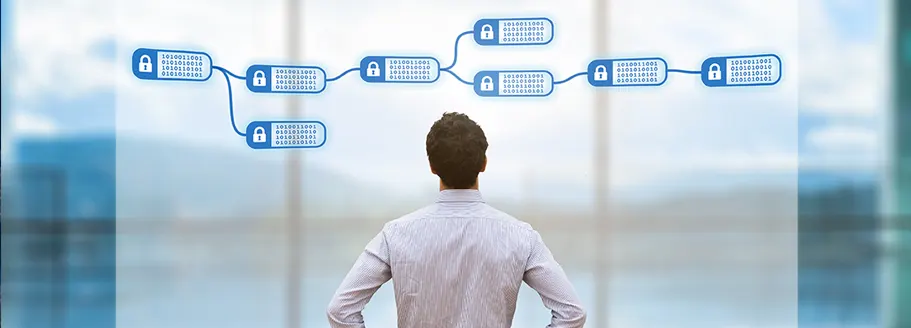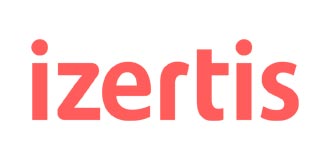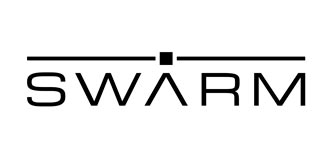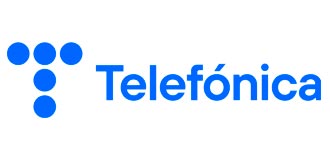Master's Degree in Continuing Education in Blockchain, Cryptocurrencies, and Tokenization

Understand the fundamental principles of blockchain across key public and private networks: Bitcoin, Ethereum, and Hyperledger.
The Master's Degree in Continuing Education in Blockchain, Cryptocurrencies, and Tokenization is a commitment aimed at providing practical training in a sector poised to underpin the technological advancements of companies in the medium and long term.
In an accessible learning environment, you will gain the necessary foundations to comprehend and navigate the multifaceted concepts within this expansive domain: legal, technical, and business.
This program is designed to equip students with the tools and knowledge required to thrive in the realm of blockchain professionally and personally. It covers a spectrum of blockchain technologies, including public, private, and consortium blockchains. The curriculum is tailored to develop key competences demanded in today's professional landscape, encompassing both business and legal aspects crucial for understanding the development of decentralized applications (dApps). Students will cultivate the ability to discern what is viable from both a business and technological perspective, supported by practical examples throughout the course.
Furthermore, students will be required to develop a project under the supervision of the program director, allowing them to apply the knowledge acquired throughout the course. Through these projects, students will build a solid foundation, equipping them with the necessary skills to thrive in a job market where demand for this technology is steadily increasing.
To bolster its impact on the educational landscape and reaffirm its dedication to students, Nebrija University hosts the Nebrija Quantum Connection Day.
Why study the Máster en Blockchain, Criptoactivos y Tokenización

Exclusive Program
With more than double the teaching hours compared to any other Master's degree on the market, this program significantly enhances the employability of all students. It includes a Master's Final Project supervised by the program director.

Experiential Approach
Benefit from expert teachers actively working in the Blockchain and Web3.0 industry, providing firsthand knowledge of the sector and fostering valuable networking opportunities.

Partnerships with Industry Leaders
Izertis, Telefónica, SWARM, Alloy, The Block Temple, and Creativigo are just a few of the prestigious partners collaborating with the program. These partnerships support the training process and provide professional internship opportunities for students.
Curriculum
All our degree programs and curricula adhere to the latest legislative guidelines and have been verified by the National Quality Assessment Agency.
Each student is required to complete 60 credits.
First Semester 24 ECTS
- 1 ECTS | Introduction to Blockchain
- 1 ECTS | Asymmetric, Symmetric, Hash, and Obfuscation Cryptography
- 2 ECTS | Bitcoin: Origin of Cryptoassets as We Know Them Today
- 3 ECTS | Ethereum Ecosystem: Layer 1, Layer 2, and Parallel Developments
- 1 ECTS | Development of Projects Based on Blockchain and Distributed Technologies
- 8 ECTS | Notions and Development of Ethereum Virtual Machine (Java & Solidity)
- 5 ECTS | Notions and Development on Hyperledger (IBM)
- 3 ECTS | Asset Tokenization: Standards, Features, and "Tokenomics"
Second Semester 24 ECTS
- 3 ECTS | National and International Regulation
- 3 ECTS | Economics & Tokens: Exchanges and Payment Methods
- 3 ECTS | Tokens, Regulation, and Tools
- 3 ECTS | DeFi Ecosystem and Strategies
- 3 ECTS | Analysis of New Business Models: Digital Identity
- 3 ECTS | Analysis of New Business Models: Public Sector & Logistics
- 3 ECTS | Cybersecurity of Distributed Technologies
- 3 ECTS | Future and Goals of the Blockchain World
Internship 12 ECTS
- 12 ECTS | Master’s degree internship
Director
 Iván Zamarrón
Doctor en Ingeniería de Control y Sistemas Inteligentes con una destacada tesis doctoral en tokenización de recursos hídricos en gestión pública, descentralizada, del Agua; cuenta con más de 20 años de experiencia internacional en Consultoría, Ingeniería y Executive Education en los ámbitos de Análisis de Negocio, Tecnologías Exponenciales, Operaciones y Proyectos. Buen conocedor del ecosistema de tecnologías distribuidas en España, trae consigo un grupo de expertos como claustro del programa, que dominan la integración de las tres vertientes del máster: Negocio, Tecnología y Legal.
Iván Zamarrón
Doctor en Ingeniería de Control y Sistemas Inteligentes con una destacada tesis doctoral en tokenización de recursos hídricos en gestión pública, descentralizada, del Agua; cuenta con más de 20 años de experiencia internacional en Consultoría, Ingeniería y Executive Education en los ámbitos de Análisis de Negocio, Tecnologías Exponenciales, Operaciones y Proyectos. Buen conocedor del ecosistema de tecnologías distribuidas en España, trae consigo un grupo de expertos como claustro del programa, que dominan la integración de las tres vertientes del máster: Negocio, Tecnología y Legal.
Professors
 David Arroyo Guardeño
Ingeniero Superior de Telecomunicación por la Universidad de Sevilla (2002) y Doctor por la Universidad Politécnica de Madrid (2009). Entre 2003 y 2005 fue desarrollador de software en el Centro Nacional de Información y Comunicación Educativa del Ministerio de Educación de España. En 2005 inicia su actividad investigadora en el Grupo de Criptología y Seguridad de la Información del Consejo Superior de Investigaciones Científicas (CSIC) de España. Fue profesor en la Escuela Politécnica Superior de la Universidad Autónoma de Madrid (UAM) desde enero de 2011 a julio de 2018. Desde julio de 2018 es Científico Titular en el Instituto de Tecnologías Físicas y de la Información del CSIC donde actualmente lidera el Grupo de investigación en Ciberseguridad y Protección de la Privacidad. Participa en los comités CTN 320 (Cybersecurity and Protection of Personal Data) y CTN 71/SC 307 (Blockchain and distributed ledger technologies) de UNE.
David Arroyo Guardeño
Ingeniero Superior de Telecomunicación por la Universidad de Sevilla (2002) y Doctor por la Universidad Politécnica de Madrid (2009). Entre 2003 y 2005 fue desarrollador de software en el Centro Nacional de Información y Comunicación Educativa del Ministerio de Educación de España. En 2005 inicia su actividad investigadora en el Grupo de Criptología y Seguridad de la Información del Consejo Superior de Investigaciones Científicas (CSIC) de España. Fue profesor en la Escuela Politécnica Superior de la Universidad Autónoma de Madrid (UAM) desde enero de 2011 a julio de 2018. Desde julio de 2018 es Científico Titular en el Instituto de Tecnologías Físicas y de la Información del CSIC donde actualmente lidera el Grupo de investigación en Ciberseguridad y Protección de la Privacidad. Participa en los comités CTN 320 (Cybersecurity and Protection of Personal Data) y CTN 71/SC 307 (Blockchain and distributed ledger technologies) de UNE.
Su actividad investigadora se ha desarrollado en proyectos nacionales y 3 proyectos europeos (2 de ellos en curso), estando centrada en el análisis, diseño y evaluación de sistemas para la protección de la seguridad y de la privacidad de la información. Ha participado en múltiples congresos nacionales e internacionales relacionados con la seguridad de la información y la teoría aplicada de dinámica de sistemas (lista de publicaciones en https://dargcsic.github.io/publications/), y es co-autor de dos libros, cuatro capítulos de libro, así como revisor y editor asiduo de revistas recogidas en el SCI (Science Citation Index). David Arroyo cuenta con una amplia experiencia docente en seguridad informática y criptografía, ha sido co-director de una tesis doctoral y de múltiples Trabajos de Fin de Grado y de Fin de Máster en los programas de Grado y de Máster de la Escuela Politécnica Superior de la UAM (https://dargcsic.github.io/prospective-students/)
 Javier Heredia Yzquierdo
El Dr. Heredia Yzquierdo es un abogado, radicadao en Madrid y Londres. Es miembro del Ilustre Colegio de Abogados de Madrid (ICAM) con el número de colegiado 74464 y socio desde hace más de 20 años del Despacho de Abogados “Jiménez Tovar e Hijos” en Madrid, España. Tiene un doctorado. en Derecho Comercial. También tiene un MBA Internacional de la Universidad de Leicester en el Reino Unido y una Master Internacional en Gestión de Empresas por la ESCEM (Grande Ecole Supérieure de Commerce et Management Poitiers-Tours, Francia). Además de contar con otros dos másteres, es licenciado en Derecho por la prestigiosa Universidad Pontificia de Comillas-ICADE de Madrid y es Diplomado en Asesoría Jurídica de Empresas de la misma Universidad (E-1). Profesor de Derecho Comercial, Ambiental y Corporativo a estudiantes de MBA, MPM y otros Máster. También ha sido director del Minor en Fintech y Blockchain en EAE Business School en Madrid entre los años 2019 y 2021.
Javier Heredia Yzquierdo
El Dr. Heredia Yzquierdo es un abogado, radicadao en Madrid y Londres. Es miembro del Ilustre Colegio de Abogados de Madrid (ICAM) con el número de colegiado 74464 y socio desde hace más de 20 años del Despacho de Abogados “Jiménez Tovar e Hijos” en Madrid, España. Tiene un doctorado. en Derecho Comercial. También tiene un MBA Internacional de la Universidad de Leicester en el Reino Unido y una Master Internacional en Gestión de Empresas por la ESCEM (Grande Ecole Supérieure de Commerce et Management Poitiers-Tours, Francia). Además de contar con otros dos másteres, es licenciado en Derecho por la prestigiosa Universidad Pontificia de Comillas-ICADE de Madrid y es Diplomado en Asesoría Jurídica de Empresas de la misma Universidad (E-1). Profesor de Derecho Comercial, Ambiental y Corporativo a estudiantes de MBA, MPM y otros Máster. También ha sido director del Minor en Fintech y Blockchain en EAE Business School en Madrid entre los años 2019 y 2021.
Ha publicado varios artículos sobre derecho comercial, derecho ambiental, Blockchain y aspectos legales de la IA. Se pueden encontrar en Researchgate y Academia.net. Las principales áreas de interés del Dr. Heredia Yzquierdo son el Derecho Comercial, el Blockchain y el Desarrollo de Negocios.
More Academic Information
Degree:Master's Degree in Continuing Education in Blockchain, Cryptocurrencies, and Tokenization
Prospective students interested in pursuing the degree of " Master's Degree in Blockchain, Cryptocurrencies, and Tokenization" should possess a blend of collaboration, goal orientation, and authenticity. They need to demonstrate flexibility, active listening skills, and a readiness to tackle complex challenges.
Graduates from educational systems outside the European Higher Education Area may apply without requiring the homologation of their degrees. However, the University will verify that their qualifications are equivalent to the corresponding official Spanish university degrees, allowing access to postgraduate education in the country of issuance. Admission via this route does not imply the approval or recognition of the previous degree for purposes other than pursuing Master's degrees.
60 credits.
Minimum of 12 ECTS credits and maximum of 60 ECTS credits per enrollment and academic period.
Center responsible:Higher Polytechnic School
Branch of knowledge: Information Technology Area
Available places: 30
Type of Education: Classroom-attendance
Language: Spanish
Competences
General Competences- GC1 - Understanding Blockchain: Origins, Present, and Future. Comprehend the inception and evolution of blockchain since its beginnings. Grasp the fundamentals of essential cryptography in the realm of distributed technologies.
- GC2 - Understanding Bitcoin and the Ethereum Ecosystem. Acquire knowledge of applying corresponding technology to projects and discern why choosing one network over another is crucial.
- GC3 - Grasping Private Networks and Consortia for Enterprises. Understand how Hyperledger dominates over 70% of developments in these sectors. Develop individual ideas and projects based on blockchain.
- GC4 - Collaborative Teamwork in Interdisciplinary Settings. Demonstrate proficiency in working within interdisciplinary teams comprising varied profiles involved in the design process: design, technical, and business departments.
- GC5 - Leadership and Integration in Interdisciplinary Teams. Exhibit leadership skills and integrate individuals into interdisciplinary teams encompassing all profiles contributing to business idea development.
- GC6 - Building Interpersonal Relationships in Multifaceted Teams. Establish interpersonal connections with teams across various domains: sales/marketing, development, business, and legal.
- GC7 - Proficiency in Decentralized Applications (dApps) Development. Acquire skills in developing dApps and specific applications tailored for companies in private or consortium environments.
- GC8 - Comprehend tokenization and its business applications across various sectors.
- GC9 - Navigate the legal implications inherent in distributed technology development.
- GC10 - Grasp the concept and applications of decentralized finance (DeFi) and tokens in diverse projects, as well as understand the usefulness of tokens in different projects.
- GC11 - Conceptualize and imbue DeFi or dApp developments with practical business viability.
- GC12 - Recognize the multifaceted challenge of Digital Identity across sectors.
- GC13 - Appreciate the necessity of blockchain in cybersecurity at both business and project levels.
- GC14 - Internalize the transformative potential of blockchain across all societal sectors.
- GC15 - Engage and comprehend participation in the evolving landscape of distributed technology and its future possibilities.
- SC1 - Design decentralized applications with a user-centric approach.
- SC2 - Comprehend the technical principles of blockchain and Web3, along with the key characteristics of blockchain systems.
- SC3 - Explore mining and staking in public blockchain networks.
- SC4 - Understand the various typologies of blockchain consortia and private networks, and their implications for the master's thesis project.
- SC5 - Recognize the significance of tokenization in projects based on distributed technology.
- SC6 - Grasp the technical fundamentals of Ethereum and Ethereum-based blockchain networks, including the Ethereum Virtual Machine (EVM), its limitations, and possibilities.
- SC7 - Understand the primary consensus algorithms used in major blockchain networks.
- SC8 - Gain insights into the fundamentals of cryptography.
- SC9 - Analyze second layer networks, Sidechains of public blockchain networks, and the implementation of Zero Knowledge Proof technology, such as ZK-Snarks.
- SC10 - Develop new business models leveraging blockchain technology across various sectors, including the public sector.
- SC11 - Develop Smart Contracts (SC) and SC chaining. Conduct code audits for SCs and deploy them in test, public, and private environments. Proficiency in Truffle and Metamask.
- SC12 - Explore the design of Oracles and their implementation in project and business models.
- SC13 - Deploy and implement decentralized applications (dApps).
- SC14 - Create a project utilizing Hyperledger. Deploy projects in consortium networks. Familiarity with SCs in Hyperledger Besu networks.
- SC15 - Understand the legal implications of the recent MiCA law approved by the EU. Assess characteristics, advantages, disadvantages, and potential when developing our project.
- SC16 - Engage with both centralized and decentralized Exchange environments. Understand internal processes and explore the development of new applications within decentralized finance.
- SC17 - Engage with Digital Identity environments based on blockchain technology. Study and consider integration within our project.
Methodology
Classroom-attendance modality
A methodology for delivering face-to-face and virtual classes (synchronous, live) is proposed, setting this master's degree apart from others, as most are primarily online. We provide videos and activities through the Nebrija University platform, along with live and recorded class monitoring.
The Degree in Continuing Education in "Technological Master's in Blockchain, Cryptoassets, and Tokenization" at Nebrija University is distinguished by its interdisciplinary approach and its ability to adapt to various fields. These programs cater to individuals eager to specialize or professionals in technical fields looking to explore the realm of distributed technologies. As a technology shaping the present and future and underpinning all productive sectors, blockchain will gradually permeate every industry. This master's degree offers a specialization path for technical and/or business professionals aiming to gain a qualitative and distinctive edge over their peers.
The master's degree caters to individuals with a drive for innovation, placing a strong emphasis on student-centered learning and the ability to devise novel solutions to challenges posed by outdated and inefficient business practices. Throughout the program, we prioritize equipping students with the knowledge required to comprehend user and organizational needs, while also fostering technical proficiency to craft optimal designs for the problems at hand.
Delivered through in-person, synchronous sessions, instruction will be led by experts who have been integral to the inception of groundbreaking technologies such as Bitcoin, Ethereum, and decentralized finance. This provides students with unparalleled access to the forefront of the technological landscape.
Methodology for the Master’s Final Project
Blockchain and the Web3 universe have ushered in a paradigm shift in the business landscape, paving the way for unprecedented business models. Leveraging the foundational qualities of this technology such as transparency and immutability, the objective of the master's thesis is to incubate a project that lays the groundwork for a blockchain-based company.
The master's program comprises 7 modules divided into 16 sections. Sessions, which can be tailored to suit the needs of the student(s), will be organized at the conclusion of each module to oversee the development of this startup-style venture. Approximately every 2 weeks, students will engage in sessions with their project supervisor towards the culmination of the master's program, encompassing project preparation, development, and presentation before a tribunal comprised of faculty members from the master's program.
From the master's degree leadership and our extensive experience spanning over 5 years in delivering this type of training, we have observed that this approach to the master's final project enables students to digest the substantial amount of content covered throughout nearly 11 months of intensive study in a more structured manner.
Calendar and Schedule
Academic Calendar
The program will be delivered both in-person and virtually (synchronously) during the afternoon hours, allowing students to balance their academic or professional commitments.
The schedule will be as follows:
- Monday: 4 hours from 6:00 p.m. to 10:00 p.m.
- Wednesday: 4 hours from 6:00 p.m. to 10:00 p.m.
- Friday: 3 hours from 6:00 p.m. to 9:00 p.m.
There will be no sessions held in August, during Holy Week 2024, or on days between long weekends. Classes will commence on Monday, February 5, 2024, with the final session scheduled for November 29, 2024, which includes the defense of the final project before the tribunal.
Master’s Final Project
FRP sessions will take place on Thursdays from 7:30 p.m. to 8:30 p.m. Plenary sessions will be conducted in person, while group sessions may be held in person or remotely, based on team agreement.
During the plenary sessions, teams will review the deliverables for the session and outline the next steps, facilitated by the coordinating FRP tutor.
Group sessions aim to discuss project progress, address queries, and receive feedback from the group tutor. Following these sessions, team coaching sessions will occur, led by an expert in group coaching and lasting for an hour.
Starting from October, an additional day of group sessions (to be determined) will be allocated for expert coaching sessions, where participants will learn to conduct coaching sessions for third parties, applying their master's knowledge.
The sessions will commence with a plenary, followed by alternating group and plenary sessions according to the schedule:
Admission
Admission Requirements
Students must meet the admission criteria outlined by current regulations for accessing master's degrees from a Spanish university.
Individuals interested in enrolling in the "Technological Master's in Blockchain, Cryptocurrencies, and Tokenization" should possess a blend of creativity and technical aptitude. They should demonstrate innovation, a passion for research, and a high degree of creativity.
Graduates from educational systems outside the European Higher Education Area may apply without the need for degree homologation. However, the University will verify that their qualifications are equivalent to the corresponding official Spanish university degrees required for admission to postgraduate education in the country of issuance. Admission through this route does not imply approval or recognition of the previous degree for purposes other than pursuing master's degrees.
In the case of students with special educational needs resulting from disabilities, the necessity for potential curricular adjustments, alternative study paths, or adaptations will be assessed.
Employability
Career Opportunities
Upon completing the Master's degree, students will be equipped to pursue their professional careers in various fields such as:
Collaboration Agreements for professional internships
This Master’s program has established collaboration agreements for professional internships with leading companies and institutions in the sector, including:
More information about Internships in CompaniesYour Master's Degree in Blockchain, Cryptocurrencies, and Tokenization
Visit all the Activities of the Higher Polytechnic School
Launch of the autonomous vehicle
FEM Expert and Nebrija University are combining cutting-edge engineering with other fields such as computer science, ethics, psychology and legal issues related to the essential homologation of the vehicle in this transversal project.
Mathematics and Physics in the digital age
Session where the challenges and opportunities of mathematicians and physicists in the digital age, interdisciplinarity, innovation and technology were addressed, as well as the bachelor's degrees in Applied Mathematics and Applied Physics (and their double degree) launched by the Higher Polytechnic School of Nebrija University.




